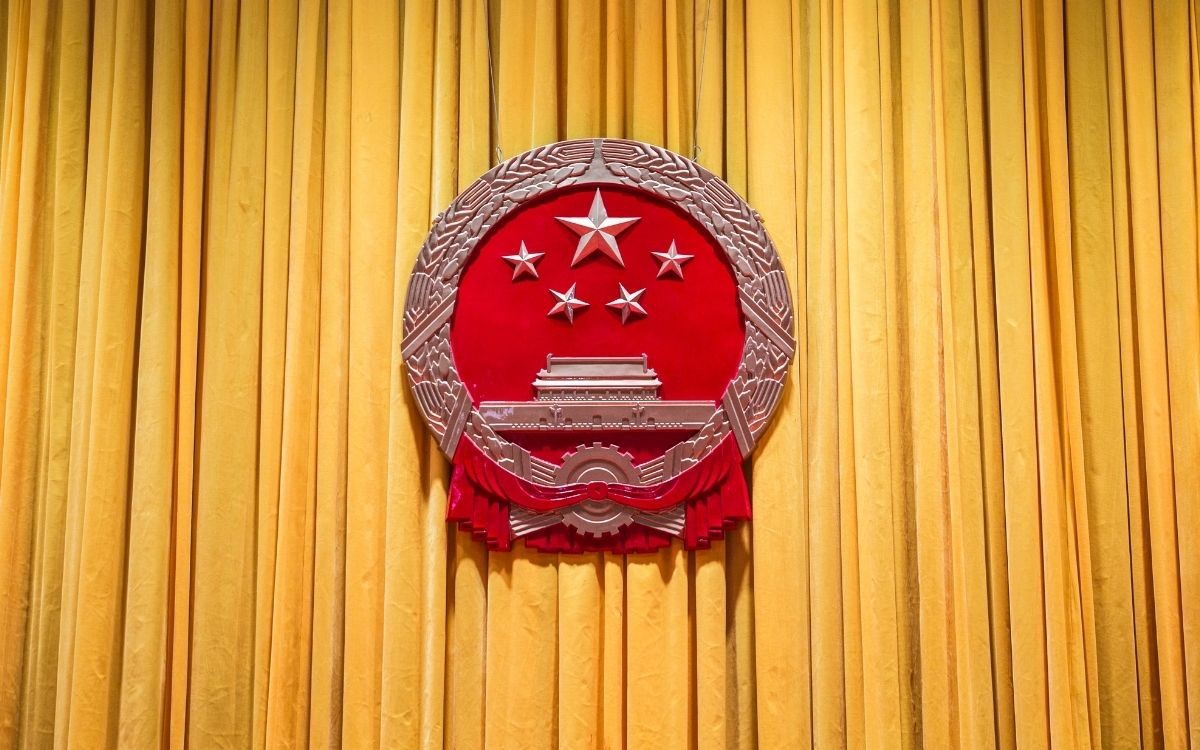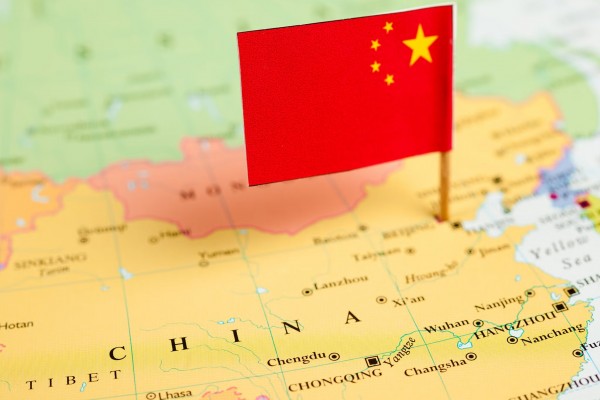Review № 26 of Chinese Antitrust News from the Experts of the BRICS Competition Centre
- SAMR Anti-Unfair Competition Report
- Fair Competition Policy Promotion Week took place in China
- Antitrust Compliance Guidelines for Concentrations of Undertakings Published
- Meeting of the BRICS Coordination Committee on Antimonopoly Policy
- Gan Lin at the 8th BRICS International Competition Conference
- Antimonopoly seminar at the “One Belt, One Road” forum
- CNKI scientific base fine for cybersecurity violation
- China will launch Global AI Governance Initiative
- Analysis of the development of the platform economy in China
- The Chinese App Store requires localization of applications
- Zhejiang Province Issues Obligation List for Online Marketplaces
- Online non-fiction publishers sign Fair Competition Convention
- Five-year legislative plan
- The Draft Rules on Cross-Border Data Transfers have been presented
- Draft Rules for Online Auctions Presented
- Alibaba and Ant Group win antitrust case in court
SAMR Anti-Unfair Competition Report
In a report on the implementation of China's Anti-Unfair Competition Law in 2022, the market regulator mentions enforcement successes, legislative initiatives, the most representative cases and key events of the year. During the year, 9,069 cases were committed, the total amount of fines and penalties amounted to ≈85 million dollars. Work is underway to prepare third amendments to theAnti-Unfair Competition Law; the Joint Interdepartmental Group for combating unfair competition is actively functioning, which this year focused on eliminating commercial bribery in the medical and health care sector.; 20 pilot trade secret protection zones were launched.
Source: SAMR
Fair Competition Policy Promotion Week took place in China
From September 11 to 15, events were held throughout China as part of the Fair Competition Policy Promotion Week: in particular, the X China International Fair Competition Policy Forum and the National Fair Competition Conference, a thematic forum on digital transformation that simplifies the supervision of fair competition, round table for entrepreneurs, expert seminar on combating anti-competitive practices, etc. Local thematic workshops and campaigns were also held in selected provinces and cities.
Source: SAMR
Antitrust Compliance Guidelines for Concentrations of Undertakings (Guidelines) Published
As part of the X China International Forum on Fair Competition Policy, held in Nanjing on September 11-12, China's State Administration for Market Regulation (SAMR) published the Antitrust Compliance Guidelines for Concentrations of Undertakings. In preparation, the department actively consulted with business representatives to better understand their key needs and common problems. Representatives of the academic community and legal practitioners were also involved, and 165 comments were received during the public consultation.
It is important to note that the Guidelines are advisory in nature and encourage companies to always take into account their own conditions and peculiarities, rather than to create compliance systems "copycat", provoking unnecessary costs.
Chinese text: SAMR
Russian translation: BRICS Competition Centre
Meeting of the BRICS Coordination Committee on Antimonopoly Policy
On September 27, a meeting of the BRICS Coordination Committee on Antimonopoly Policy was held in a hybrid format in South Africa. It was attended by the Head of the Chinese antimonopoly authority Gan Lin, Deputy Head of the FAS Russia Andrey Tsyganov, Head of the South African Competition Commission Doris Tshepe, Commissioner of the Administrative Council for Economic Defense of Brazil Victor Oliveira Fernandes and Chairman of the Competition Commission of India Ravneet Kaur. The parties shared updates in their countries' competition laws and focused on discussing cooperation in antitrust enforcement. They unanimously expressed their intention to deepen cooperation in the BRICS format and promote the healthy and sustainable development of mutual trade and economic ties.
Source: SAMR
Gan Lin at the 8th BRICS International Competition Conference
From October 11 to 20, the Chinese delegation led by SAMR Deputy Head Gan Lin took part in the 8th BRICS International Competition Conference and also paid official visits to India, Kazakhstan and Pakistan.
At the conference, Gan Lin spoke about the Chinese leniency program for cases of anti-competitive agreements, about measures and experience of anti-monopoly regulation of the digital economy and about innovations in Chinese anti-monopoly legislation, and also, together with the heads of other competition authorities of the BRICS countries, signed the Delhi Joint Statement.
During the visit to Kazakhstan, the Chinese side also signed a Memorandum of Cooperation in the field of fair competition with the Agency for Protection and Development of Competition.
Source: SAMR
Antimonopoly seminar at the “One Belt, One Road” forum
Representatives of SAMR and the Ministry of Commerce held a seminar on antitrust enforcement for foreign participants of the III International Forum “One Belt, One Road”. The seminar was attended by 45 officials from 10 states (Afghanistan, Azerbaijan, etc.). Chinese lecturers spoke about China's regulatory system, current competition policy, antitrust legislation and law enforcement practice. They also noted that China is committed to synergizing pro-competition measures and policies, strengthening practical cooperation in the field of competition, and jointly shaping a competitive order in the international market.
Over the 10 years of the One Belt, One Road initiative, SAMR has already held 26 different thematic seminars for foreign colleagues from all over the world.
Source: SAMR
CNKI scientific base fined for cybersecurity violation
A review of the activities of the largest Chinese database of scientific articles, China National Knowledge Infrastructure (CNKI), for cybersecurity, which began more than a year ago, has been completed. During the inspection, the Cyberspace Administration of China (CAC) identified a number of violations in 14 applications operated by CNKI: collection of unnecessary personal data, collection of personal data without the user’s consent, inaccessible or unclear data collection and use policy, lack of an “account deletion” function, illegal storage of data after deletion and others. The fine amounted to ≈$6.8 million. In response to the decision on punishment, CNKI stated: “We wholeheartedly accept and strictly obey.”
Earlier this year, the platform was also fined ≈$13 million for abusing its dominant position in the market for online publishing of scientific research papers in Chinese: since 2014, CNKI has consistently inflated prices for its services, limited access to scientific publications, signed agreements on exclusive cooperation and monitoring their implementation through punishments and rewards.
China will launch Global AI Governance Initiative
As part of the III International Forum “One Belt, One Road” taking place in Beijing, China announced the launch of the Global AI Governance Initiative. As stated, it is necessary to resist ideological divisions and the formation of closed groups that impede the development of AI in other countries; create a tiered AI testing and evaluation system to make AI technologies more reliable and controllable. It is also proposed to make efforts to strengthen international cooperation with developing countries and provide them with the necessary assistance in reducing the gap in the field of AI and capabilities in managing it. It is unacceptable to use the advantage in the development of AI to manipulate public opinion, disinformation, interfere in the internal affairs of other countries or disrupt public order. It is argued that all countries, regardless of their size, influence and social system, have an equal right to develop and use AI.
Sources: Ministry of Foreign Affairs of the PRC, Baijiahao
Analysis of the development of the platform economy in China
The report was published by a team of analysts led by economist Ren Zeping, former chief financial officer of China Evergrande, the largest Chinese developer. The material states that in the global platform economy, 71.5% of the value comes from the United States and 24.8% from China, making the Chinese platform economy the second largest. After more than 20 years of development, it supports 200 million jobs, improves transaction efficiency and reduces costs. In regulating platforms, China places great emphasis on combating anti-competitive practices and protecting fair competition, as well as combating the abuse of big data and algorithms. Compared to the European regulatory strategy, China is trying to help companies develop, take advantage of their advantages (scale, first-mover advantage, etc.), avoiding too much regulatory pressure that blocks the vitality of companies. Analysts note such trends as the decreasing importance of profit streams from traffic and globalization, increasing predictability of regulation, integration of the digital and real sectors, and the emergence of the development of the digital economy as a national strategy.
Source: Baijiahao
The Chinese App Store requires localization of applications
Apple will require an Internet Content Provider (ICP) license from new apps that want to register their products on the Chinese AppStore. The license is issued by the Ministry of Technology and Information Technology of China and confirms the regulator’s consent to distribute the application in China. In theory, the general requirement to have a license was in effect before, but in the case of Apple, it was not enforced in practice, and many applications that had long been banned in China were still available for download on the site using a VPN. However, recently the regulator began to create lists of licensed application stores, and AppStore was not included in them, so now, in order to continue operating its application store in China, Apple will have to strictly control the availability of the specified license. To obtain it, the developer must be physically present in China (have a branch or servers) or distribute the application through a Chinese publisher.
Zhejiang Province Issues Obligation List for Online Marketplaces
The Zhejiang provincial government has published a list of obligations that apply to the responsibilities of operators of online transaction platforms, including both general obligations and special requirements for six specific types of platforms (these are live marketing platforms, food and service trading, tourism services, and cosmetics trading platforms). products, trade in medical equipment, trade in medicines). The list of general obligations is divided into seven chapters (permitting documentation, user management, open information, platform management, unfair competition, security guarantees, cooperation with the regulator) and contains 141 items, which also concern products, content, transaction policies, prices, intellectual rights, personal data and protection of minors, as well as compliance with algorithms, monopolistic practices and other prohibited actions. 130 additional obligations relate to these 6 categories of online platforms: these are, for example, requirements for user verification and maintaining “black lists” for live broadcast platforms or requirements for providing insurance, signing travel contracts and risk management for tourism service providers.
Source: Gov.cn
Online non-fiction publishers sign Fair Competition Convention
The largest Chinese online platforms where scientific materials and literature are published have signed the first self-discipline convention in China in order to maintain fair competition. The convention states that signatories are required to comply with laws related to fair competition, publishing and copyright, cybersecurity, and to provide their services at reasonable and fair prices. Monopolistic activities and unfair competition are prohibited. The document expresses protest against any forms of exclusive cooperation with authors, universities and publishing houses. Any online publisher of scientific literature can submit a request to join the convention.
Source: SAMR
Five-year legislative plan
The Standing Committee of China's highest legislative body, the National People's Congress, has published a work plan for the next five years. In particular, it included consideration of draft amendments to the laws “On Combating Unfair Competition” and “On Cybersecurity,” as well as promoting the development of a law on accelerating the development of the digital economy.
Source: News.cn
Draft Rules on Cross-Border Data Transfers have been presented
Recently, the Chinese authorities introduced a requirement for security assessments for the export of data for certain categories of operators, and also introduced a model contract for such exports. The proposed rules clarify situations where conducting an assessment, signing a standard contract, or obtaining accreditation as a personal data operator is not required. In particular, these requirements do not apply to cross-border transfers of data in the course of scientific collaboration, unless such collaboration involves personal or sensitive data (relevant data is data that is publicly classified as such by authorities).
Source: CAC
Draft Rules for Online Auctions Presented
The draft contains ten guiding opinions regulating the development of the industry and promoting its “healthy development”: this includes encouraging innovative technologies and business models, welcoming interdepartmental cooperation in supervision and control, supporting self-government and self-discipline in the industry, etc. A separate paragraph is devoted to regulation the activities of such online platforms, where fair competition plays an important role: investigate anti-competitive agreements, cases of abuse of a dominant position in the market, uncoordinated economic concentration transactions and unfair competitive practices; prevent cases of abuse of power by authorities.
Source: SAMR
Alibaba and Ant Group win antitrust case in court
The lawsuit was brought to the Shanghai Intellectual Property Court by a private individual: Mr. Li Zhen accused the Alibaba group marketplaces of abusing their dominant position because they offered users a single payment option (the Alipay payment system). The court ruled that there was no violation because:
- online payment services are an integral part of online retail shopping platforms;
- online payment services are not separate paid services, which means this is not considered a related sale;
- the choice of platforms is reasonable, since Alipay belongs to the Alibaba group and is able to ensure the security and efficiency of transactions;
- there is no evidence that the platforms prevented the connection of other payment service providers.
Source: PaRR




